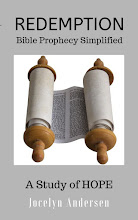This movement began in the Roman Catholic Church
Contemplative prayer, Centering Prayer and Soaking Prayer are all the same thing. Those who practice such things are called mystics.
Contemplative prayer is a practice derived from Eastern mysticism. More and more Christians are turning to Mysticism.
The desert fathers (Roman Catholic monks) are the fathers of contemplative prayer in the west.
Mantra meditation is the basis for contemplative prayer.
Francis Schaefer defines Mysticism as nothing more than a faith contrary to rationality, deprived of content and incapable of communication. You can bear witness to it but you cannot discuss it."
Mystics claim that God cannot be defined by systems of doctrine. They maintain that western rationalism has crushed the knowledge of God and that we must return to a more intuitively (non-biblically) received knowledge.
The New mystics maintain that all religions should immerse themselves in the myths of their tradition because there is power in the "collective unconscious"
For the New Mystics, the use of biblical language bears no resemblance to the faith taught in the Bible. For example, the call to salvation is actually a call to a transformation of consciousness to be psychologically awakened to the unity and oneness of all creation.
Contemplative Spirituality Promotes Universalism and emphasizes ecumenism
Those who embrace contemplative spirituality eventually graduate to ecumenism which deepens over time to an extreme ecumenism which includes non-Christian religions and all "faith groups." The gospel of Scripture is ultimately rejected and a view that all are saved (universalism) is adopted.
The New Mystics frequently use the phrase "unconditional love" to express universality.
Thomas Merton (popular among protestants) a roman catholic contemplative author, says one can work within the Christian traditions but view universalism as the broader truth
Brennan Manning (popular contemplative author) in his Ragamuffin Gospel teaches that the life, death, and resurrection of Christ mean that all are redeemed. I. E. no one needs to get saved—all are already saved because of what Christ did.
Brennan Manning understands the deeper issues of contemplative spirituality. He writes: It is important to realize that when contemplatives speak of knowing God as your Father/Abba, they are not referring to regeneration. They are referring to achieving a level of intimacy with God, "intimacy with Abba." They view all people as heaven bound. The issue for them is becoming a mystic whose experience of God transforms the life and hence the world. Their ultimate aim is to usher in a new world.
Manning's attitude toward the Bible: “I am deeply distressed by what I only can call in our Christian culture the idolatry of the Scriptures. For many Christians, the Bible is not a pointer to God but God himself. In a word-bibliolatry. … I develop a nasty rash around people who speak as if mere scrutiny of its pages will reveal precisely how God thinks and precisely what God wants (pp. 188-89).
Author and speaker, Jocelyn Andersen, is an eclectic
Christian writer. She is a Bible teacher who writes about many subjects
including Bible
prophecy and equality
of the sexes. She is best known for her advocacy in domestic
violence awareness. Her book, Woman Submit! Christians & Domestic Violence, has been a staple in the library of resources on that subject.
To receive Jocelyn's newsletters,
subscribe HERE.
To receive an
announcement from Amazon whenever a new book is released by Jocelyn Andersen, subscribe
to Her Amazon author's
page.
To
Contact Jocelyn: Use
the contact form in the sidebar of her blog at www.jocelynandersen.com to leave comments on her books, to reach her with questions,
or to request for her to come and speak at your group.









